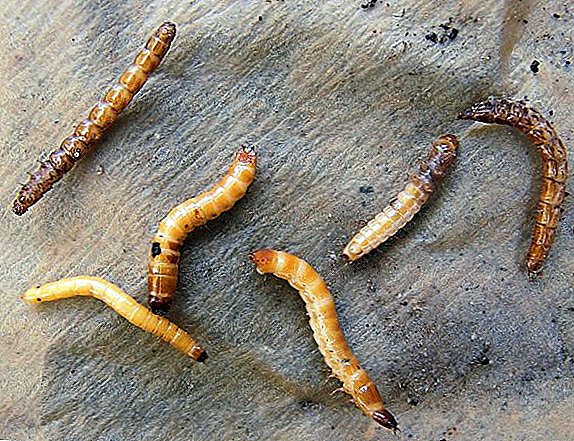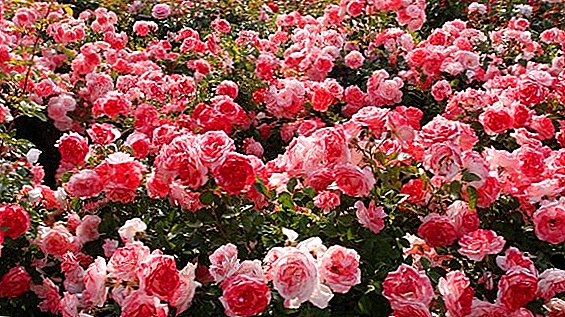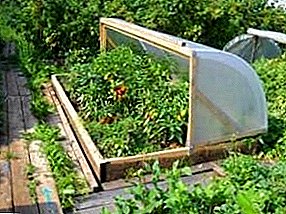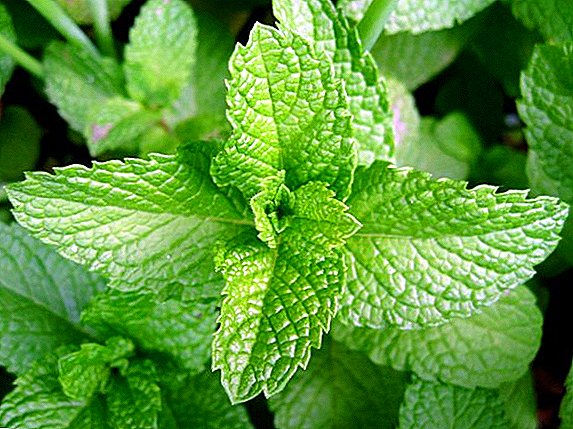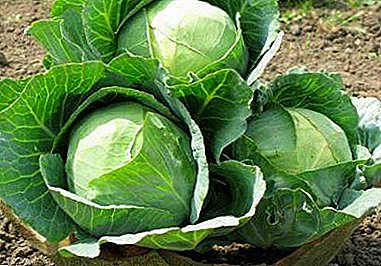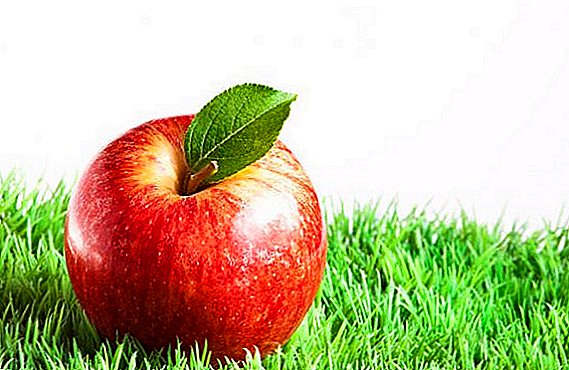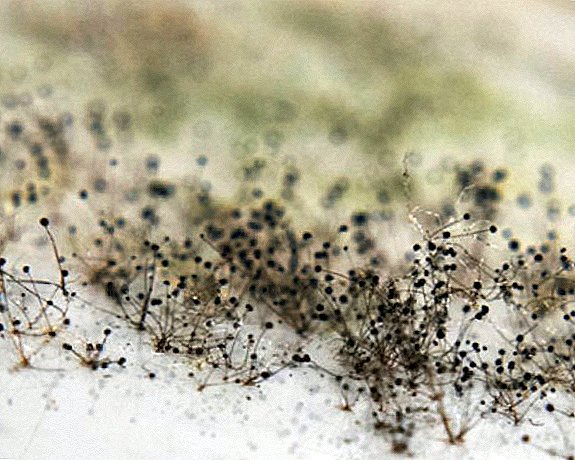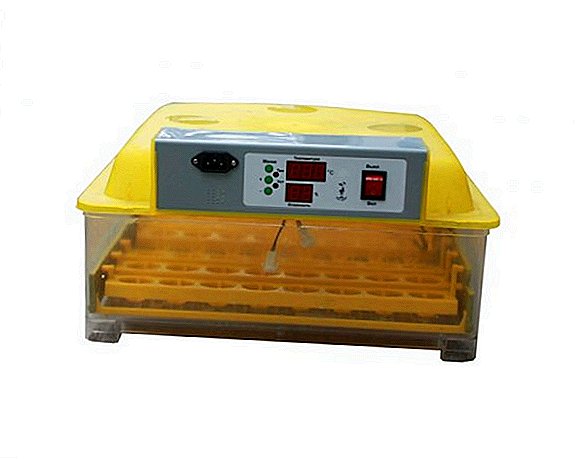 Virtually every apartment or house has at least a few indoor plants. Flower growers make maximum efforts aimed at the growth, development and life extension of their green pets. Amber acid will help to make the care of the flowerpots better, which should become the best friend for houseplants and not only.
Virtually every apartment or house has at least a few indoor plants. Flower growers make maximum efforts aimed at the growth, development and life extension of their green pets. Amber acid will help to make the care of the flowerpots better, which should become the best friend for houseplants and not only.
What is succinic acid
Succinic acid is an odorless substance, which has the appearance of white crystals, dissolves well in water and in alcohol. The taste is very close to citric acid. In nature, it is not only in amber, but also in animal organisms. Even a small amount of it qualitatively affects the growth and improvement of yields of various crops. The substance is absolutely harmless, it is used not only in agriculture, but also in medicine, as well as in cosmetology. On sale is presented in the form of tablets and powder.
Did you know? Succinic acid, due to its properties, can prevent the formation of malignant tumors, reduce allergic reactions of the body, neutralize some toxins in it, including ethanol and nicotine.
What is used succinic acid, the beneficial properties of the plant stimulator
 Succinic acid is, first of all, a growth stimulator.
Succinic acid is, first of all, a growth stimulator.
An additional pleasant effect is an increase in the level of plant resistance to drought, cold, green pets will gain the strength to fight various diseases.
Important! Do not take succinic acid as a panacea for all ills. Of course, you should take care of plants, fertilize and feed them with other useful substances and minerals.
Succinic acid for plants finds its application both in the form of irrigation and in the form of spraying. Interestingly, an overdose component is almost impossible, the plant will learn only the amount of substances it needs. This means that even a novice florist will be able to easily process their pot. But, of course, it is better to always read the instructions and follow it.
Effect of succinic acid on the soil
The soil in which the home plant will live is perhaps the most important component in the development and livelihoods of green pets. It is not always possible to be confident in the purity and quality of the soil chosen for planting. Therefore, it is recommended to treat the soil with succinic acid. It will help to significantly improve the composition of the soil, stabilize its microflora, and destroy foreign toxic components. The acid itself is environmentally friendly, which means it will not pollute the soil structure.
How does succinic acid on plants
 That succinic acid provides useful trace elements for plants it is already clear whether it is used in tablets or in powder form. Begin processing as early as possible. Initially, planting material is improved with a solution of this acid - seeds or young seedlings. Thus, the effect of the drug will be fixed for a long period.
That succinic acid provides useful trace elements for plants it is already clear whether it is used in tablets or in powder form. Begin processing as early as possible. Initially, planting material is improved with a solution of this acid - seeds or young seedlings. Thus, the effect of the drug will be fixed for a long period.
Did you know? Doctors recommend the use of succinic acid for inflammation in the joints, because the drug can improve blood circulation and remove salt from the human body.Regular watering room flowers amber acid protects them from heat and frost, high humidity and excessive drought, they will hurt less often or will not hurt at all. And most importantly, the plants will significantly accelerate their growth.
How to prepare a solution of succinic acid, the use of the drug in growing plants
Succinic acid in the application for flowers is very simple, and therefore ideal even for beginners in this business. To prepare the solution you need to take about 2 g of acid and 1.5-2 liters of liquid. First, the substance is introduced into warm water, and then cold is gradually added until the temperature becomes moderate, room temperature.
Important! The effect of the finished solution is limited to 2-3 days, then you need to prepare a new one.The use of succinic acid for flowers depends on the goals that the grower wants to achieve:

- In order for the seeds to grow faster, they should be held for about a day in an acid solution, then dried thoroughly and planted in the prepared soil.
- To quickly develop the root system, it is soaked in a solution of succinic acid for 45-50 minutes. After that, the roots must be dried and then planted in the ground.
- Succinic acid will help to improve and rooting cuttings. It is enough to immerse the lower part of the cuttings in the solution for a day (by 1.5-2 cm), and this will give the desired effect.
- To activate the growth of new shoots in the plant, it is necessary to spray the stems and leaves with a solution of acid once every 2-2.5 weeks, always in the morning or in the evening.
- To reanimate the painful perishing plant will help watering and spraying a solution of higher concentration. At 1 liter of warm water is taken 0.25 g of the drug.
Application for the garden
 In the garden, this "miracle powder" is no less popular. Succinic acid is often used for seedlings, for example, tomatoes and cabbage. It also processes cucumbers, carrots, radishes, turnips, lettuce, beets, etc. A light solution of succinic acid (1 g per 1 liter) seeds are processed before sowing, which will greatly enhance their productivity in the future.
In the garden, this "miracle powder" is no less popular. Succinic acid is often used for seedlings, for example, tomatoes and cabbage. It also processes cucumbers, carrots, radishes, turnips, lettuce, beets, etc. A light solution of succinic acid (1 g per 1 liter) seeds are processed before sowing, which will greatly enhance their productivity in the future.
As for potatoes, before planting, it is necessary to treat the tubers with a solution, then cover them with a film for about 2 hours and then start planting. This will speed up the flowering process, increase yields.
Important! Vegetables can be processed at a later period of their growth, but in this case it is necessary to increase the concentration of the solution by 6-10 times.Succinic acid is used more likely not as a fertilizer, but as an activator of growth, which helps to steadily increase crop yields without an overabundance of various mineral supplements.
How to use succinic acid gardeners
 Succinic acid is indispensable in gardening. To speed up the ripening of fruits in the garden, to increase the yield, to improve the taste will help spraying the drug during the flowering period. On 125 square meters takes about 5 liters of solution.
Succinic acid is indispensable in gardening. To speed up the ripening of fruits in the garden, to increase the yield, to improve the taste will help spraying the drug during the flowering period. On 125 square meters takes about 5 liters of solution.
Succinic acid has a very good effect on the following garden plants:
- Strawberries. The treatment solution is prepared at the rate of 0.4 g per 5 liters of warm water.
- Cherry, apricot. 0.2 g per 5 liters of water.
- Grapes 0.4 g per 5 liters of water. Regular use of succinic acid can increase the level of vitamin C in fruits.
Did you know? As practice shows, succinic acid can increase yields by 20-30%, because it increases the content in plants and fruits of biologically valuable substances.
Amber acid and indoor floriculture
It happens that only acquired plants or plants that have been living in a house for a long time slow down or even stop their growth. In such cases, succinic acid supplementation with houseplants, such as orchids, will come to the rescue. The working solution will strengthen and stimulate the development of flowers, help to increase the green mass and contribute to the formation of new roots.
 By the way, the latter is very important in the cultivation of orchids. After all, it often happens that the roots of orchids become weak, dry or, conversely, rot due to excessive moisture. And as a result of exposure to succinic acid, the plant forms new roots, it is easier to take root and it is easier to transfer the transplant to a new soil.
By the way, the latter is very important in the cultivation of orchids. After all, it often happens that the roots of orchids become weak, dry or, conversely, rot due to excessive moisture. And as a result of exposure to succinic acid, the plant forms new roots, it is easier to take root and it is easier to transfer the transplant to a new soil.
In order to start the process of formation of the root system, it is enough to take one tablet of the drug per 0.5 l of water and spray the root collar and lower orchid leaves from a spray. Residues can gently pour the soil under the pot.
Important! For the acid to work for a longer time, it can be used in submersible irrigation.
Succinic acid, is there any harm?
There is no doubt that succinic acid benefits plants and stimulates their qualitative development, but is it possible to harm green darlings? It should be noted that no adverse effects on plants of this drug were observed. It is imperative to follow the instructions for use, but even if something goes wrong and there is an overdose, it is perceived by plants as quite normal, because they will assimilate exactly as many nutrients as they need.
Also a huge plus is the absolute harmlessness of succinic acid for people and domestic animals.
 This crystal powder will make a green gardener collection healthy, strong and beautiful, save you from diseases and pests. You can buy succinic acid in specialized stores, or in almost any pharmacy.
This crystal powder will make a green gardener collection healthy, strong and beautiful, save you from diseases and pests. You can buy succinic acid in specialized stores, or in almost any pharmacy.


